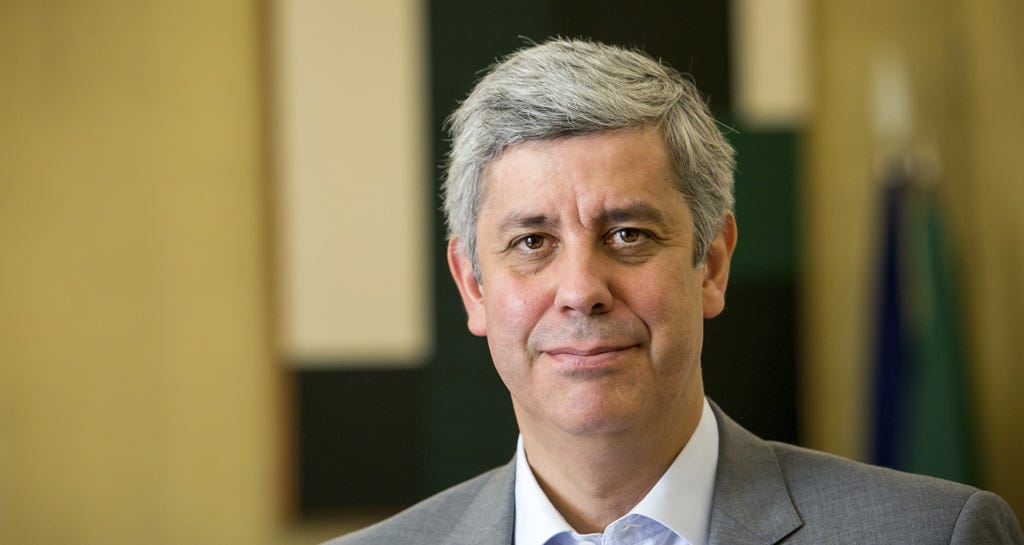Admiral Gouveia e Melo tops Presidential poll again
Respondents identified “strong leadership” as the most important quality in a President (42%), followed by “integrity and ethics” (31%) and the “ability to make difficult decisions” (31%).
What?
With one year to go until the Presidential elections, a recent poll conducted by Pitagórica confirmed yet again that recently retired Admiral Henrique Gouveia e Melo is the favorite among potential contenders.
The survey, commissioned by TSF, Jornal de Notícias, O Jogo, and TVI/CNN Portugal, placed Gouveia e Melo ahead of the UN Secretary General António Guterres, Bank of Portugal Governor Mário Centeno and former Prime Minister Pedro Passos Coelho.
According to the poll, 28% of respondents say they would vote “for sure” for Gouveia e Melo, while an additional 29% indicate they would “maybe” vote for him.
This gives him a potential support rate of 57%, the highest among the 19 names evaluated. Moreover, Gouveia e Melo has the lowest rejection rate, with only 39% of respondents stating they would “not” vote for him.
Former Prime Minister António Guterres ranked second, with a potential support rate of 54%, closely trailing Gouveia e Melo.
Meanwhile, Mário Centeno places third with a potential vote share of 43%, making him the top-performing candidate from the socialist sphere.
In a hypothetical second round against Gouveia e Melo, Centeno garnered 32% support compared to the Admiral’s 51%.
Broad Appeal and Rejection Rates
The poll indicates that Gouveia e Melo appeals to a broad demographic, particularly women, voters from the 2021 presidential race who supported Marcelo Rebelo de Sousa or André Ventura, and residents in the North and South regions of Portugal.
He also finds favor among lower-income groups. However, he faces resistance from young voters, liberals, and those aligned with left-wing parties.
André Ventura, who has already declared his candidacy for the presidency for a third time, faces significant challenges, including a high rejection rate of 80%.
Notably, some Chega voters have expressed a preference for Gouveia e Melo over Ventura.
Respondents identified “strong leadership” as the most important quality in a President (42%), followed by “integrity and ethics” (31%) and the “ability to make difficult decisions” (31%).
Among PS voters, excluding António Costa, who is ineligible as President of the European Council, Mário Centeno is the preferred candidate with 37% support.
Gouveia e Melo follows closely with 34%, while António José Seguro, António Vitorino, and Ana Gomes receive less support.
For voters who supported the ruling Democratic Alliance (AD), former Prime Minister Pedro Passos Coelho leads with 57% support, followed by Gouveia e Melo (43%) and Marques Mendes (38%).
Other political figures like former PSD leader Rui Rio, former EU Commission President José Manuel Barroso, and the current President of the National Assembly José Pedro Aguiar-Branco rank lower.
Mário Centeno Rules Out Presidential Bid

However, speaking on RTP’s Grande Entrevista on Wednesday, Mário Centeno declared, “I will not be a candidate for the Presidency of the Republic. It’s not in my plans for this to happen.”
This is a major setback for the Socialist Party since he was the most popular protocandidate on their camp after António Guterres, whose mandate as UN Secretary General only ends in December 2026 - almost a year after the elections.
While expressing satisfaction with the public’s positive perception of him, Centeno noted: “These are polls. I neither overvalue nor undervalue them.”
He added: “There is a projection in Portuguese society of my role as Minister of Finance and now as Governor, and perhaps that reflects in this assessment.”
In his remarks, Centeno reinforced his commitment to his current responsibilities, making it clear that a presidential run is not part of his future plans. However, as SIC reported immediately afterwards, the Government has indicated that it will not reappoint him for a second term at the Bank of Portugal.
Poll Details
The survey was conducted between December 28, 2024, and January 5, 2025, with 400 telephone interviews of Portuguese voters.
It has a margin of error of +/- 5% at a 95.5% confidence level and a response rate of 65.36%. The sample was stratified by gender, age, and region to ensure representativeness.






